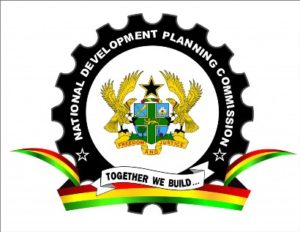NDPC reiterates Ghana’s commitments towards implementing Sendai framework
 The National Development Planning Commission (NDPC) has reiterated Ghana’s commitments towards implementing the Sendai Framework for Disaster Risk Reduction (DRR).
The National Development Planning Commission (NDPC) has reiterated Ghana’s commitments towards implementing the Sendai Framework for Disaster Risk Reduction (DRR).
Sendai Framework is a 15-year, voluntary, non-binding agreement, which recognizes that the State has the primary role to reduce disaster risk but that responsibility should be shared with other stakeholders.
Dr Grace Bediako, Director-General of NDPC said as a signatory to the Sendai Framework for DRR, Ghana was committed to effectively work towards disaster risk reduction and building resilience to disasters.
She noted that there were 25 targets related to disaster risk reduction in 10 of the 17 Sustainable Development Goals (SDGs), firmly establishing the role of disaster risk reduction as core development strategy.
Dr Bediako said this during a high-level consultation meeting on DRR in Accra.
The two-day meeting, which was held on the theme “DRR in Ghana: The Future of our Cities”, created the platform for stakeholders to discuss the status of DRR in Ghana, and outlined the broad strategies for meeting Ghana’s obligations under the Sendai Framework for DRR.
Dr Bediako said the Sendai Framework aimed for the substantial reduction of disaster risks and loss of lives, livelihoods and health and in the economic, physical, social, cultural and environmental assets.
She said the first Sendai Framework Progress Report would be published in 2019, and Member States are expected to provide an update on the status of implementation.
She noted that in line with this, countries including Ghana, conducting Voluntary National Reviews (VNR) on the implementation of the SDGs in 2019 are expected to give an update on DRR efforts at both national and sub-national levels.
The Director-General said Ghana has taken the first step by integrating both disaster risk reduction and building of resilience into policies, plans, programmes and budgets at all levels.
She was hopeful that the outcome of the meeting would form part of Ghana’s National Voluntary Review Report on the SDGs.
Mr Eric Nana Agyemang-Prempeh, Director-General of National Development Management Organisation (NADMO) said the Framework had the theme: “Building Resilience of Nations and Communities to Disasters”, has priority areas and targets aimed at substantial reduction of disaster risks and losses at the global, regional, national and community levels.
Mr Agyemang-Prempeh called on disaster risk ambassadors, to recommit their efforts to reduce disasters to the barest minimum, if not completely, as it is the task of NADMO to lead the coordination of the implementation of the Sendai Framework”.
Mr Mohammed Adjei Sowah, the Chief Executive of the Accra Metropolitan Assembly, also noted that there was a lot of work being done, based on the City Strength Diagnostic Programme conducted by the World Bank after the June 3, 2015 disaster.
He said the interventions that had been made by local authorities, had been recognized and appreciated, however, the issue had always been lack of proper planning and coordination, particularly in terms of disaster management.
He said the NADMO Act 2016, mandates all Assemblies to establish disaster management committees to ensure a proper representation at all levels; enhancing proper planning and coordination of policies.
Mr Adjei Sowah noted that this would initiate the process of disaster management issues, but unfortunately most of them are to complying to these regulations.
Source: GNA
